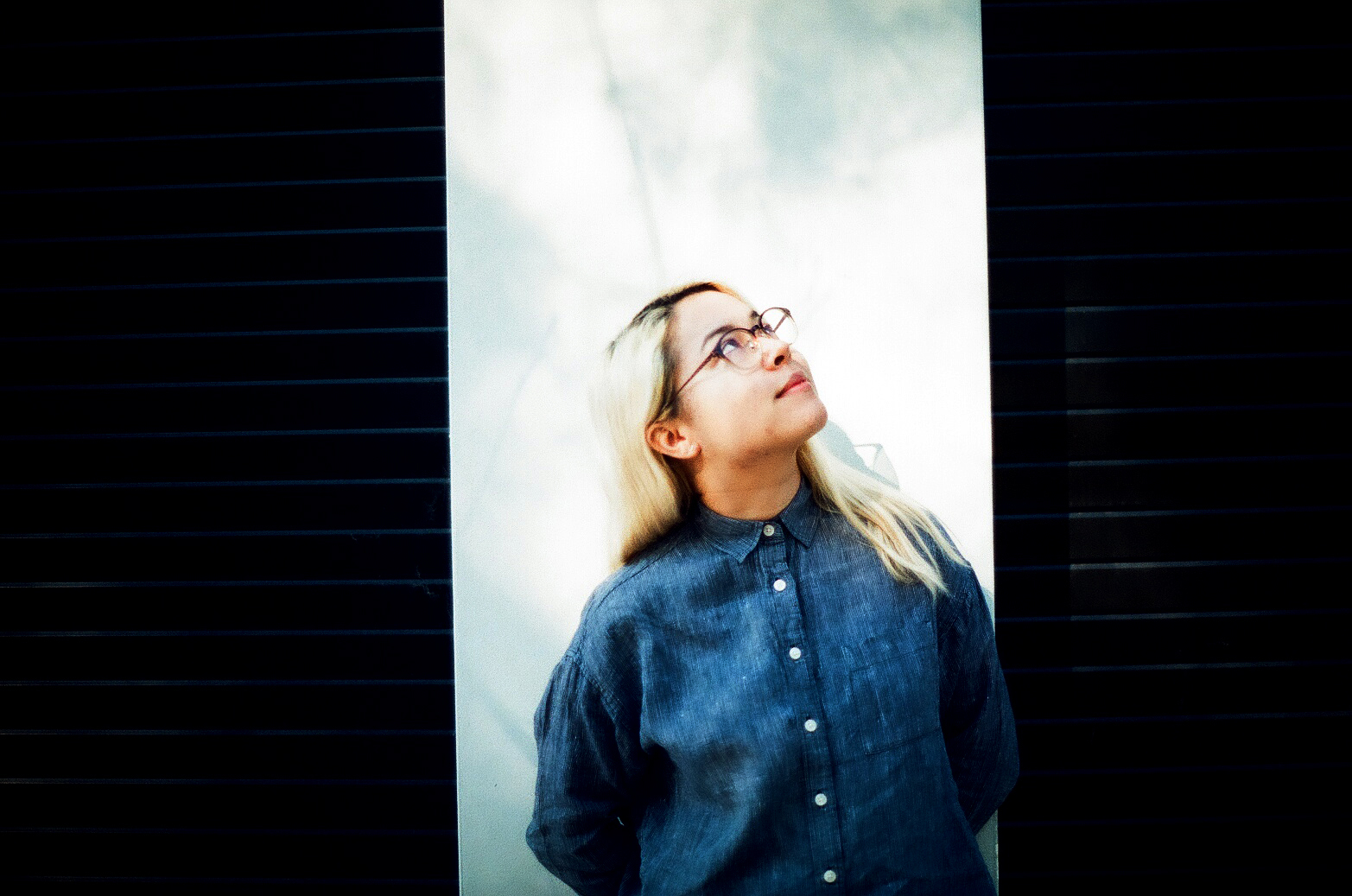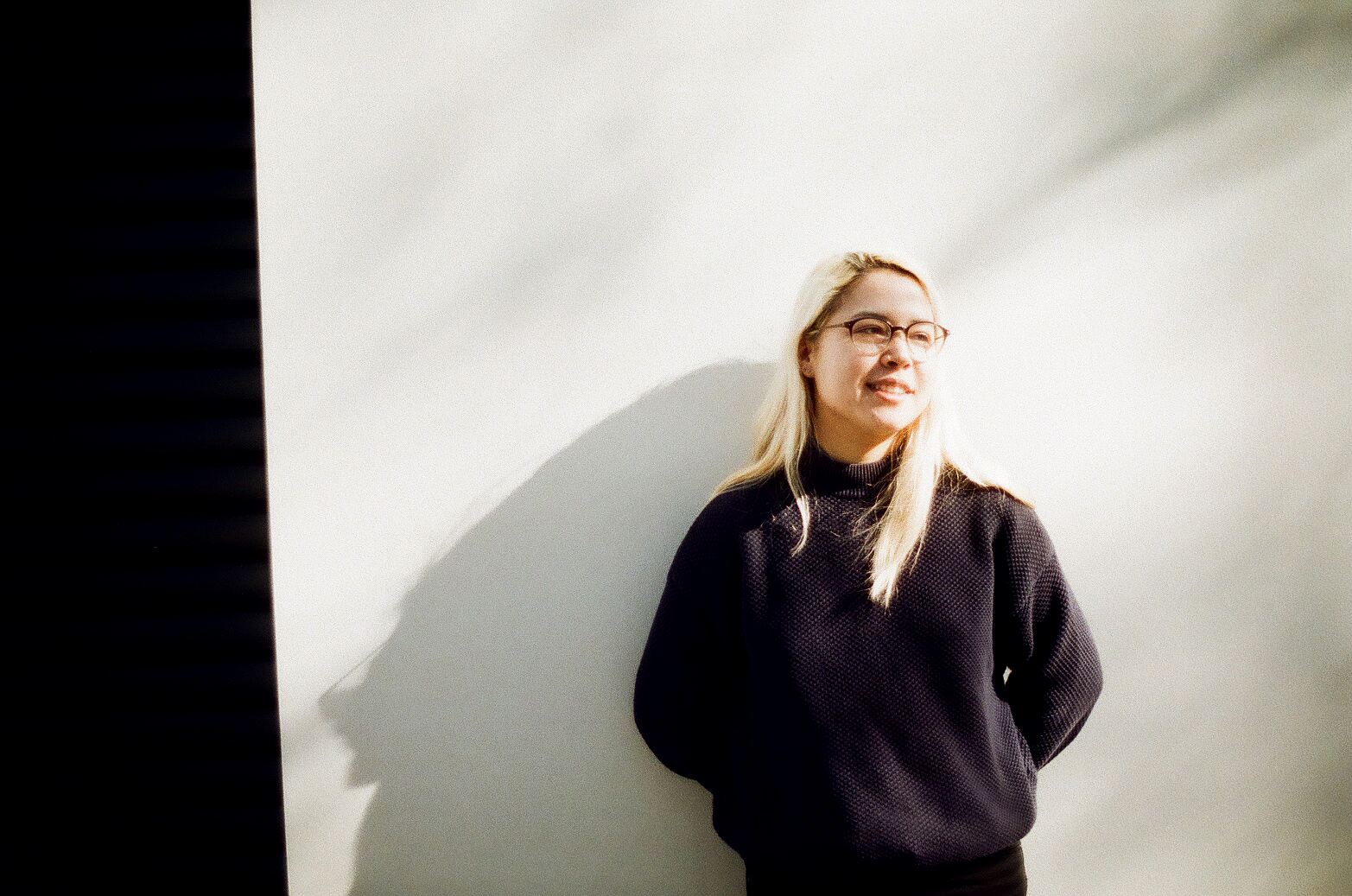Interview #88 – Mari Stuart
By Non Chalant
Mari Stuart is a radio producer, label runner, and marketing coordinator at MusicNSW. Her work often revolves around topics of politics, diversity, gender, and feminism.
Mari speaks to Non Chalant about diversity in the Australian music scene, being an optimist, and proving yourself to your parents.
Mari. What do you do?
I'm currently the marketing coordinator at MusicNSW, which is a non-profit organisation that gives support to artists in NSW. In the past I've produced radio shows such as Pink Noise, a platform for female and non-binary electronic artists on Bondi Beach Radio, and Agenda on FBi Radio which looked at arts and politics from a feminist perspective. I've also run an independent label called Perfect Hair Records, through which we've put on events and released music from local artists I love. In a nutshell, I'm a music lover and I'm passionate about supporting local, independent artists, particularly gender-diverse and POC artists.
How did you decide that you wanted to work in the music industry?
I've always known I wanted to work in music but growing up I wasn't connected to the industry in any way, and didn't think I'd have the confidence to have a career in a field that requires so much hustle and self-promotion. I actually started a science degree but ended up switching to a sound design course when I realised music was what I really had the focus for.
Coming from an Asian background I think I felt the need to prove to my parents that I'd made the right choice, so I put everything into my studies and doing internships, my own projects and a variety of paid and unpaid work in the music industry, which has led me to where I am now and I couldn't be happier.
I've always known I wanted to work in music but… didn't think I'd have the confidence to have a career in a field that requires so much hustle and self-promotion.
What is it like being a woman of colour in the Australian music landscape ?
I'm really lucky in that pretty much everyone I've worked with has been equally passionate about the importance of diversity in music. Through Pink Noise, I've seen a big shift in the way that people book female, gender-diverse and POC artists over the past few years in Sydney. While there will always be a few bad eggs in the industry, I have so much faith in the local community to put on smart, progressive events, programs, radio shows and more to celebrate the talent we have in this country. I think there's still a lot more work to be done to provide opportunities for First Nations artists and I hope that'll be a bigger part of the conversation going forward.
Could you speak about your experiences with producing Pink Noise, and Agenda on FBi?
Producing a radio show was a pretty special experience for me, meeting up with a small team every 1-2 weeks and do what basically felt like raising a baby with them - watching it grow and change over time, being challenged and constantly learning.
My favourite part of producing both shows, aside from doing something that I believed passionately in, was everyone I met along the way. Both of the teams - Marisa and Jen at Pink Noise and Katie and Tanya at Agenda - are not only some of my favourite people but they've also taught me so much, and I'll always be grateful to them. Meeting all the talented guests we had at Pink Noise (you included Non!) was always such an inspiration and really made me feel like the Sydney music scene was one big family, so that was a big high point too.
Through Pink Noise, I've seen a big shift in the way that people book female, gender-diverse and POC artists over the past few years in Sydney.
What was it like growing up as a POC in Sydney? Do you feel that it influenced the direction you chose to take in the industry? How much of it has influenced your personal projects?
I grew up in one of the whitest areas of Sydney—in a way I think that drew me closer to my Japanese heritage, which in turn has influenced a big part of my love for music. I guess I got used to connecting to communities online, whether it was messageboards for Japanese music and culture or other ‘obscure’ music that I didn't have anyone to talk to about.
I'll never know what it's like to not be a POC, so it's hard to say how much of it has influenced my professional and personal direction. It's such a fundamental part of my identity that I think it's shaped all aspects of my life.
You mentioned that you felt the need to prove that you'd made the right decision to your parents - how do they feel about what you're doing now?
I don't think they quite understand what it is I do but they can definitely see how happy I am with where I'm in life. I think that was their main worry with me pursuing a path they weren't familiar with, and I think they can see now that I made the right choice for myself.
I'll never know what it's like to not be a POC, so it's hard to say how much of it has influenced my professional and personal direction.
There's recently been a spotlight shone on diversity in festival lineups, with instagram accounts such as @lineupswithoutmales being created as a result. I feel like because of this, a lot of lineups now have 'performative diversity', where they basically try to fill up a quota for the sake of not being slammed online. What are your thoughts on this? And how do you think we can actively support diversity?
I think quotas have an important role to play in creating impactful change in a culture. It's not a long-term solution and it's certainly not the only solution, but I think it has helped create awareness, particularly with the more traditional event bookers who might not necessarily be in tune with the current discourse.
I see it like a domino effect, where you've got the progressive thinkers championing real diversity at the front, which knocks on to the 'performative diversity' festival bookers trying to keep up with cultural change, all the way down to your average event producer who's starting to think, "maybe this show shouldn't be all-male, maybe there are some killer female acts I'm missing out on".
It might be the optimist in me but I think there has been some real progress made. Five to ten years ago, diversity on lineups wasn't even part of the conversation. Of course there are always ways we can be more inclusive and I think, like in the domino effect, that change comes from the grassroots, the local community, and how we can hold ourselves accountable.
Five to ten years ago, diversity on lineups wasn't even part of the conversation.
What are you currently up to?
Currently, I'm in a bit of a transition period where a lot of my volunteer work and personal projects are finishing up. I've really valued the experience that they've given me, but I think I've come to a point in my life where less is more, and being able to put more into the fewer things I'm focusing on (i.e. work) is something I'm really excited to have a go at this year. At MusicNSW we've got brand new programs and the state election coming up, so I'm looking forward to what 2019 will bring.
What inspires you?
Helping others, the incredible artists we have here in NSW and all the smart, passionate and kind people I've worked with. And my bearded dragon Bernie who's currently resting on my back as I type this and giving me a neck ache.
Who have you been listening to?
Blood Orange again, because I had the excuse of revisiting my favourite 2018 releases at the end of last year. Also, The Beths from New Zealand because I saw them at The Lansdowne recently and they were awesome.
Do you have any advice for emerging creatives in the industry?
Work hard, but also recognise the value in your unique perspective and experiences from navigating the world. We all have different strengths and weaknesses, so the sooner you can accept and embrace that, the sooner you can use it to your advantage. Also, never stop learning and listening.
What are you currently reading?
Currently reading Kafka On The Shore by Haruki Murakami and Flash Boys by Michael Lewis.
What does being Asian Australian mean to you?
For me it's as much about family, identity and community as it is about recognising the First Nations people who were here before us, and having respect for the stolen land we live on.
A lot of good things can manifest from accidents, and diverging from usual processes or habits.
find out more
Interview by Non Chalant
Photographs by Leah Jing McIntosh






